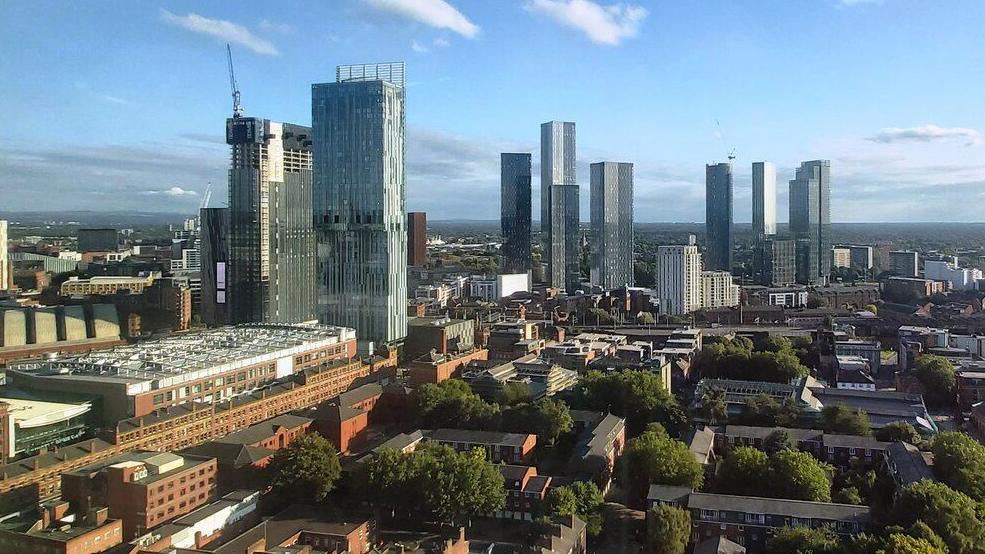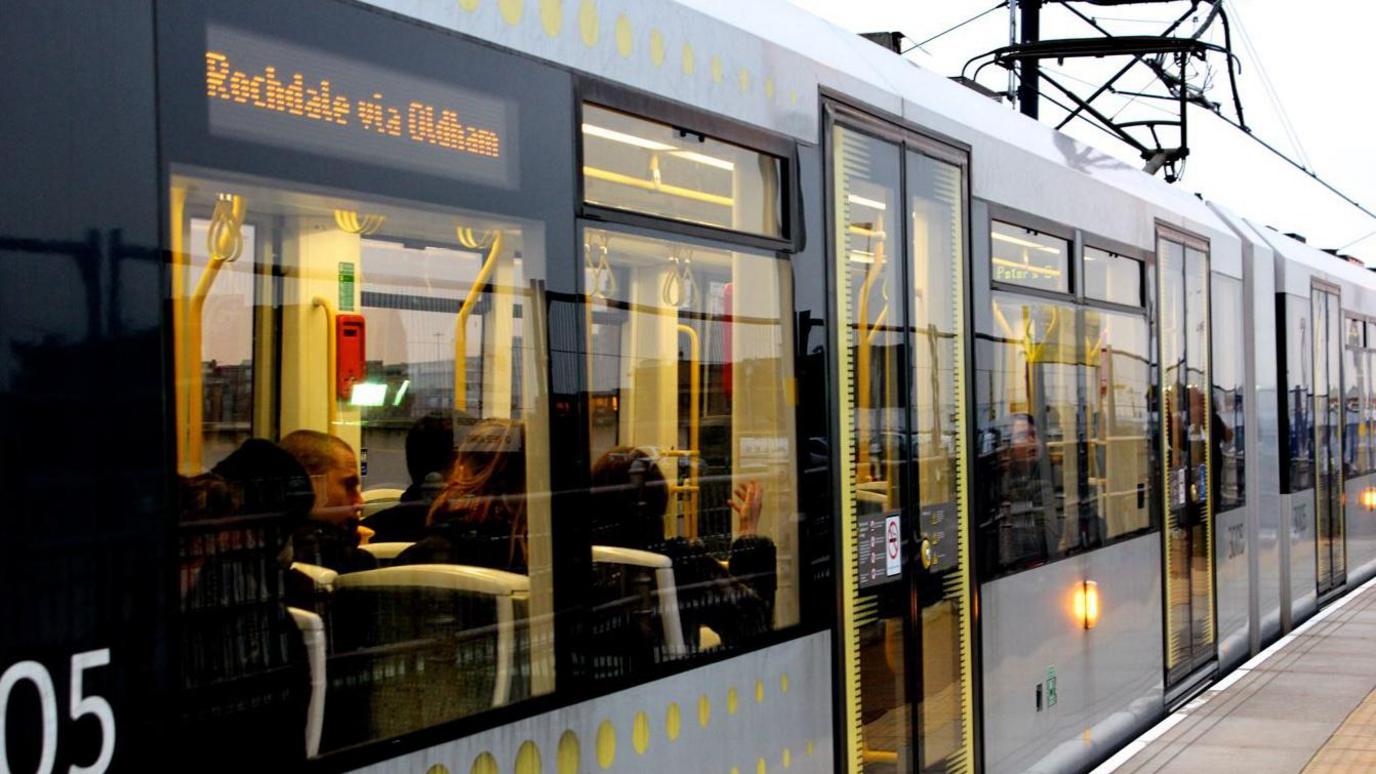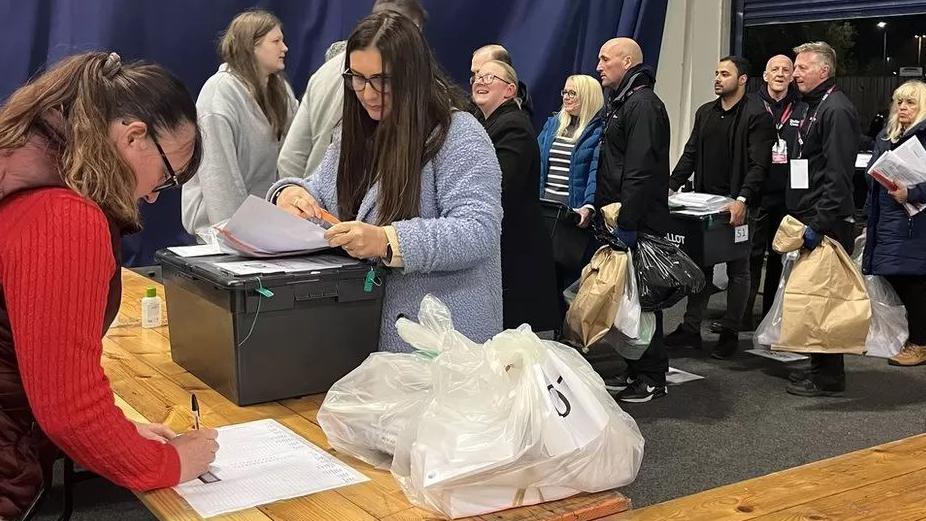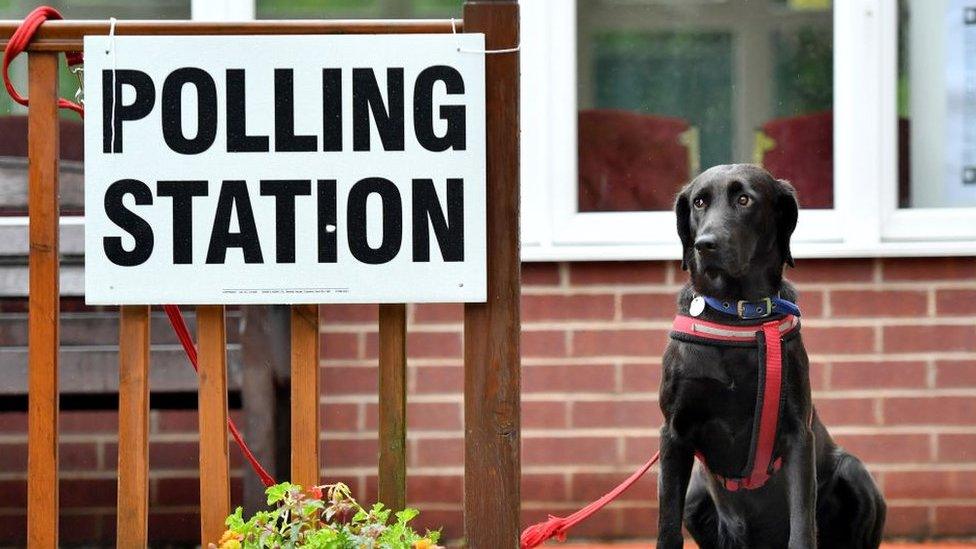Article: published on 26 April 2024
Greater Manchester mayoral election: Who is standing, who can vote and when is it?
- Published
Greater Manchester's next mayor will be elected on 2 May when residents of the region's 10 boroughs head to the polls.
The post was created in 2017 as a condition of the government giving additional powers and funding to Greater Manchester's local authorities.
The mayor's role involves acting as a figurehead and champion for the area, as well as lobbying the government.
Who is standing to become mayor?

Voters across Greater Manchester will head to the ballot box in May
In alphabetical order by surname:
Jake Austin, from Stockport, is standing for the Liberal Democrats and said he wanted to be "the progressive alternative" to the major parties as Greater Manchester deserved "a mayor who will fight its corner".
Dan Barker, from Sale, is standing for Reform UK and said he believed there was "an historic opportunity to provide the leadership Greater Manchester needs to improve the lives of all of us that live here".
Nick Buckley, from Manchester, is standing as an independent candidate and said he believed people kept voting for "political parties and career politicians and things are not getting any better [so] more of the same is not a sensible option".
Andy Burnham, who has served two terms as mayor, is standing for the Labour Party and said he had done what he said he would previously and now "we can be really ambitious for everyone in Greater Manchester".
Laura Evans, from Altrincham, is standing for the Conservative Party and said she believed Mr Burnham had been an "utter and total failure" and she had "always stood up against most of the proposals he has put forward".
Hannah Spencer, from Trafford, is standing for the Green Party and said she believed voters had "a chance to make society fairer than it is now" and she was "passionate about addressing the cost-of-living crisis and the climate crisis".
Who can vote in the election?
The mayor represents about 2.8m people in Manchester, Salford, Wigan, Bolton, Bury, Rochdale, Oldham, Tameside, Stockport and Trafford.
If you are registered to vote, and live in one of these council areas, you will be able to participate in the election.
These council areas form a wider body called the Greater Manchester Combined Authority (GMCA), the organisation created to take on extra funding and powers from central government. The mayor is effectively the publicly elected chairman of this grouping.

The mayor has control of some public transport across the region
What powers does the mayor have?
The mayor of Greater Manchester has the most powers of any elected mayor outside London and oversees decisions in relation to areas including:
Public transport
Strategic planning and housing
Productivity and skills
Economy and innovation
Environment
They also fulfil the role of police and crime commissioner, which means they must hold the chief constable of Greater Manchester Police to account on behalf of the public.
Responsibility for Greater Manchester Fire and Rescue Service also falls with the mayor.

People across the 10 boroughs of Greater Manchester can vote in the contest
When will we find out who has won?
The election will take place on 2 May, but the count will not start until a couple of days later, meaning we will not find out who has won until about 16:00 BST on 4 May.
In addition, the mayoral election will be a little different this time.
Previous ones used the supplementary vote system. In 2024, the election will use the “first past the post” system people are used to seeing in council and general elections.
It simply means the person with the most votes at the end of the count wins.
Why not follow BBC North West on Facebook, Twitter and Instagram? You can also send story ideas to northwest.newsonline@bbc.co.uk
Related topics
- Published17 January 2024
